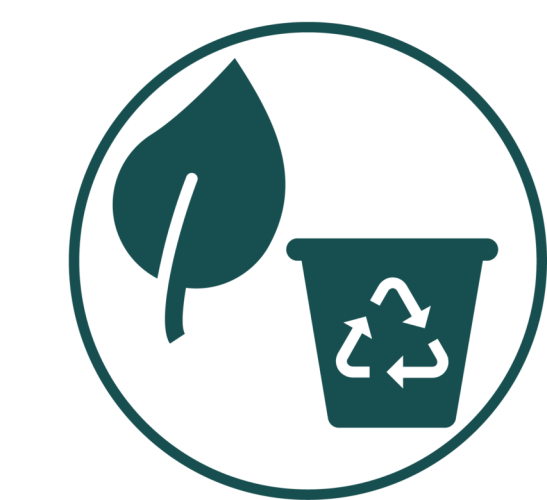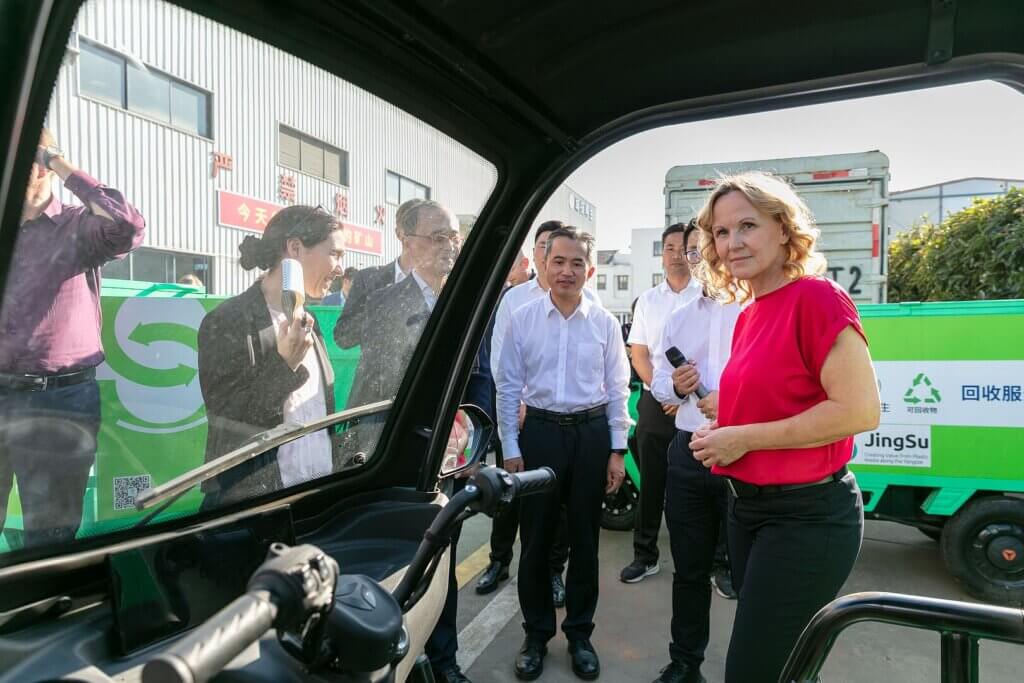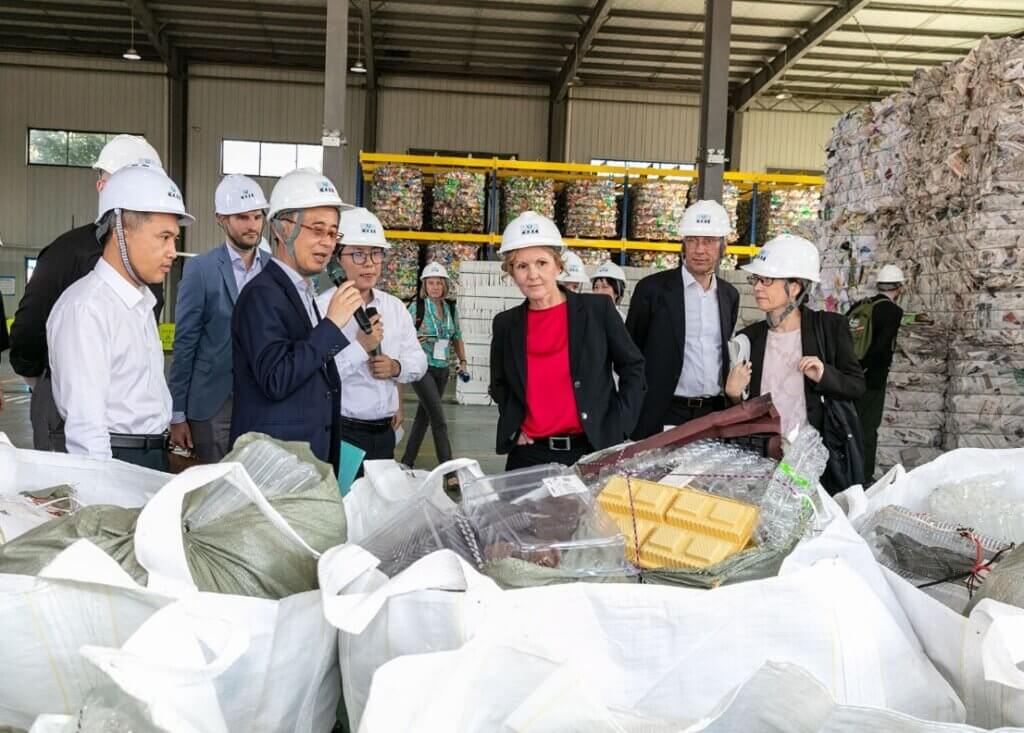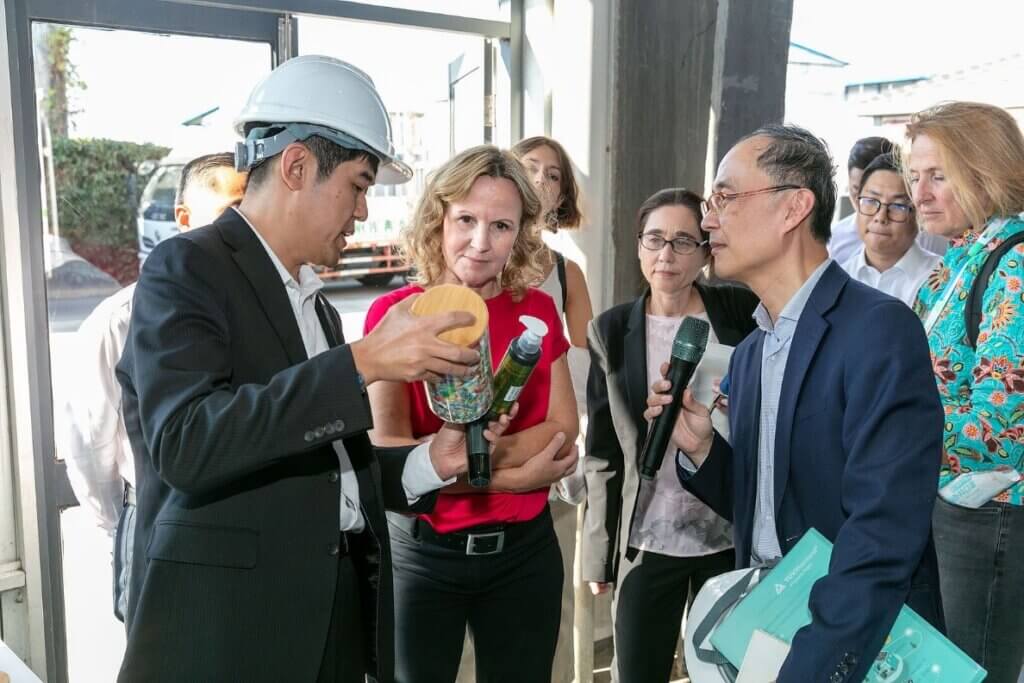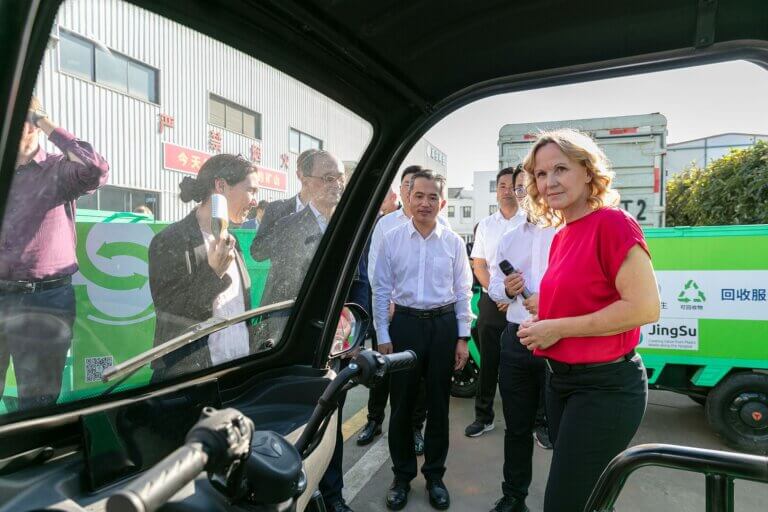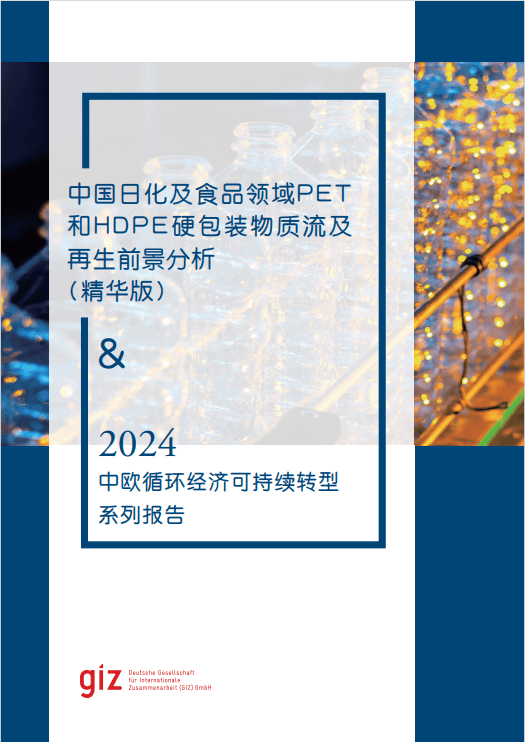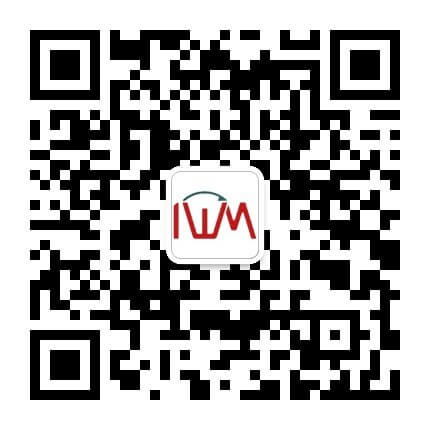Centered around the theme “Promoting Green and Sustainable Development – Collaborative Response to Pollution, Biodiversity Loss, and Climate Change,” the 7th Sino-German Environmental Forum took place in Taicang, Suzhou, Jiangsu Province, on November 1, 2023,which stands as a high-level political dialogue between both nations, complemented by pertinent environmental policy-themed conferences.
Federal Environment Minister Steffi Lemke praised the results of the 7th Sino-German Environment Forum held in Taicang, China. Minister Lemke and her Chinese counterpart, Huang Runqiu, agreed to deepen and expand the excellent cooperation between Germany and China on environmental protection and nature conservation issues. Combating plastic waste was one focus of discussion. Representatives from politics, industry and environmental associations met at the forum to discuss sustainable economic models and solutions to promote environmental protection and nature conservation. The Sino-German Environment Forum is the most important bilateral format for the two countries in environmental policy and has been held regularly since 2003.
Federal Environment Minister Steffi Lemke commented: “I am certain that China has a key role to play in tackling global crises. Without China, the biggest carbon emitter and largest producer of renewable energy, we will not be able to curb the climate crisis. China’s contribution is also vital for reaching international nature conservation goals and combating plastic waste. I am pleased that we had the opportunity for productive, solution-focused discussions at the Environment Forum in Taicang. For example, our oceans are overflowing with plastic waste, and microplastics endanger our health. This is why the unchecked growth in the production of plastics, in particular single-use plastics, cannot continue. We need sustainable product design, plastics with fewer toxins and long life spans, more multiple-use products and recycling. We must do more to tackle plastic litter on land and in the oceans. The Environment Forum in Taicang was a key step on the way to drawing up a global agreement to combat plastic pollution by 2025.”
On November 2, Federal Environment Minister Steffi Lemke led a delegation comprising over 30 representatives from enterprises, scientific research institutions, and government departments. Accompanied by Mr. Hofmann Martin, the Regional Director of Climate, Energy, Environment, and Biodiversity, and Dr. Qian Mingyu, Director of the Environment and Circular Economy Team at GIZ, they visited Suzhou Urban Investment Renewable Resources Development Co., Ltd. The visit aimed to showcase the key outcomes of the sorting center and highlight the achievements of the Sino-German low-value plastic recycling pilot project.
Picture 1: Photo by GIZ: Baiyang Bay Low-Value Plastic Sorting Center, operated by Suzhou Urban Investment Renewable Resources Development Co., Ltd.
Facilitated by the collaborative support of two key initiatives, namely the Waste to Resources Project commissioned by the Federal Ministry for Economic Cooperation and Development (BMZ) develoPPP.de Programme and the JingSu Project funded by the Alliance to End Plastic Waste (AEPW), Suzhou City embarked on low-value plastics recycling in 2020. The ongoing efforts encompass the recycling of various items such as lunch boxes, milk tea cups, trays, and more. Additionally, Suzhou City is actively exploring innovative recycling models for soft plastic packaging, further advancing sustainable practices in the region.
Picture 2: Photo by BMUV: Federal Environment Minister Steffi Lemke (3rd from the right) receiving an overview of Suzhou’s low-value plastic recycling model from Mr. Weng Liping (1st from the left), Chairman of Suzhou Urban Investment Recycling Company, and Mr. Wang Qiang (4th from the right), Deputy General Manager
Picture 3: Photo by BMUV: Federal Environment Minister Steffi Lemke (1st from the right) expressed commendation for the low-carbon performance of electric recycling vehicles.
The two projects go beyond mere plastic recycling, emphasizing the high-value utilization of plastics. They collaborate with brand companies to champion design concepts that prioritize ease of recycling and regeneration. The German delegation commended a range of innovative endeavors within the project, including the transformation of variegated HDPE bottles into new bottles, the introduction of washable labels for PET bottles, and the development of low-carbon stationery. These initiatives garnered high appreciation for their forward-thinking and environmentally conscious approaches.
Picture 4: Dr. Qian Mingyu, Director of the East Asia Environment and Circular Economy team at GIZ, presented the ecological design case of the “WtR” project to the German government delegation.
Picture 5: Samples showcasing variegated HDPE bottle-to-bottle transformation, washable PET bottle labels, and low-carbon stationery.
At the end of the visit, Federal Environment Minister Steffi Lemke said that she was deeply impressed by the Baiyang Bay low-value plastic sorting center and China’s innovation in the field of plastic recycling. Sino-German cooperation has achieved fruitful results. She highly affirmed the work of GIZ and all Chinese partners and will further strengthen in-depth cooperation with China in the field of circular economy.
Picture 6: Photo by GIZ: Federal Environment Minister Steffi Lemke (1st on the right), Mr. Hofmann Martin (1st on the left), Director of East Asia Climate, Energy, Environment, and Biodiversity at GIZ, and Dr. Qian Mingyu, Director of the Environment and Circular Economy Team at GIZ (2nd from the right), engaging in discussions on the future prospects of Sino-German circular economy cooperation.
